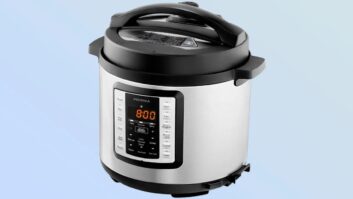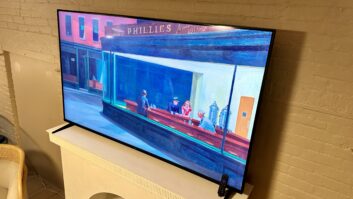Faced with mounting losses in its Musicland business and poor fundamentals going forward, Best Buy shut 107 Sam Goody and Suncoast stores, eliminated president Kevin Freeland’s position, and integrated the group into Best Buy operations.
The stores, whose leases either expired or were renewed on a month-to-month basis, included 90 Sam Goody units and 20 Suncoast stores. Together they represent 5 percent of Musicland’s total square footage, and follow the closures of 50 Musicland stores last year.
Best Buy acquired Musicland for $685 million in February 2001 with an eye toward expanding its portable digital product mix while tapping into its mall-based demographic of women and 15-to-25 year olds. But a sharp downturn in demand for pre-recorded music and a slowdown in mall traffic have weighed heavily on the chain, whose December net dropped 15 percent to $350 million.
“We believe change is necessary,” said Best Buy CEO Brad Anderson, citing Musicland’s financial performance and the potential for “continued deterioration of music sales, further reductions in mall traffic and increased competition.” The closures, which bring Musicland’s store count to 740 Sam Goody units, 387 Suncoast stores and 76 Media Play locations, will contribute to an expected loss of between $80 million and $85 million for the current fiscal year.
Best Buy has frozen plans to open new Musicland stores pending a review of the business, and is expected to announce its strategy for the ailing chain in April. In the interim, the company will begin integrating the Musicland business into its domestic Best Buy operations, with a focus, the retailer said, on the corporate staff.
The reorganization began with the departure of Musicland president Kevin Freeland, whose position has been eliminated.
By contrast, the balance of Best Buy’s retail divisions showed solid gains in December. Net for Best Buy’s flagship stores grew 12 percent to $3.52 billion as comps rose 2.1 percent, helped “significantly” by bestbuy.com. E-tail sales more than doubled in December while online traffic was up in the “strong” double digits, the company said, thanks to free shipping, expanded assortments and site improvements.
The retailer’s Canadian operation, which includes Future Shop and Best Buy stores, was ahead 27 percent in total sales to $350 million against a 3.5 percent comp store gain.
Same store sales at Magnolia Hi-Fi increased by the low single digits, driven by its selection of high-end digital, plasma and LCD TVs.
Anderson attributed the company’s industry-beating performance to “the strength of our brands, intelligent use of promotions and outstanding execution across the organization.” Leading categories included DTV, digital cameras and camcorders, satellite systems, DVD movies, video gaming software and accessories, wireless, notebook computers, networking and MP3 players, which all enjoyed double-digit comp gains.
Comps were weak for audio products and DVD hardware due to “significant price erosion,” while sales of major appliances continued to decline.
Anderson said Best Buy expects to boost sales between 10 percent and 12 percent to $25 billion in fiscal 2004, fueled by the addition of upwards of 85 new stores, including 60 Best Buy stores, 17 to 19 Canadian stores and four Magnolia Hi-Fi locations.
The Best Buy openings, comprised of 25 45,000-square-foot stores and 35 smaller-market format stores, will include six new markets and a second Manhattan location, at 86th Street and Lexington Ave.
Despite Musicland’s drag on earnings, the company also raised its fourth quarter earnings estimate to between $1.05 and $1.10 a share from expectations of $1.04 a share. “We anticipate increasing profit margins by boosting our efficiency, including improvements in our expense rate, speed to market and allocation of capital,” Anderson said.












